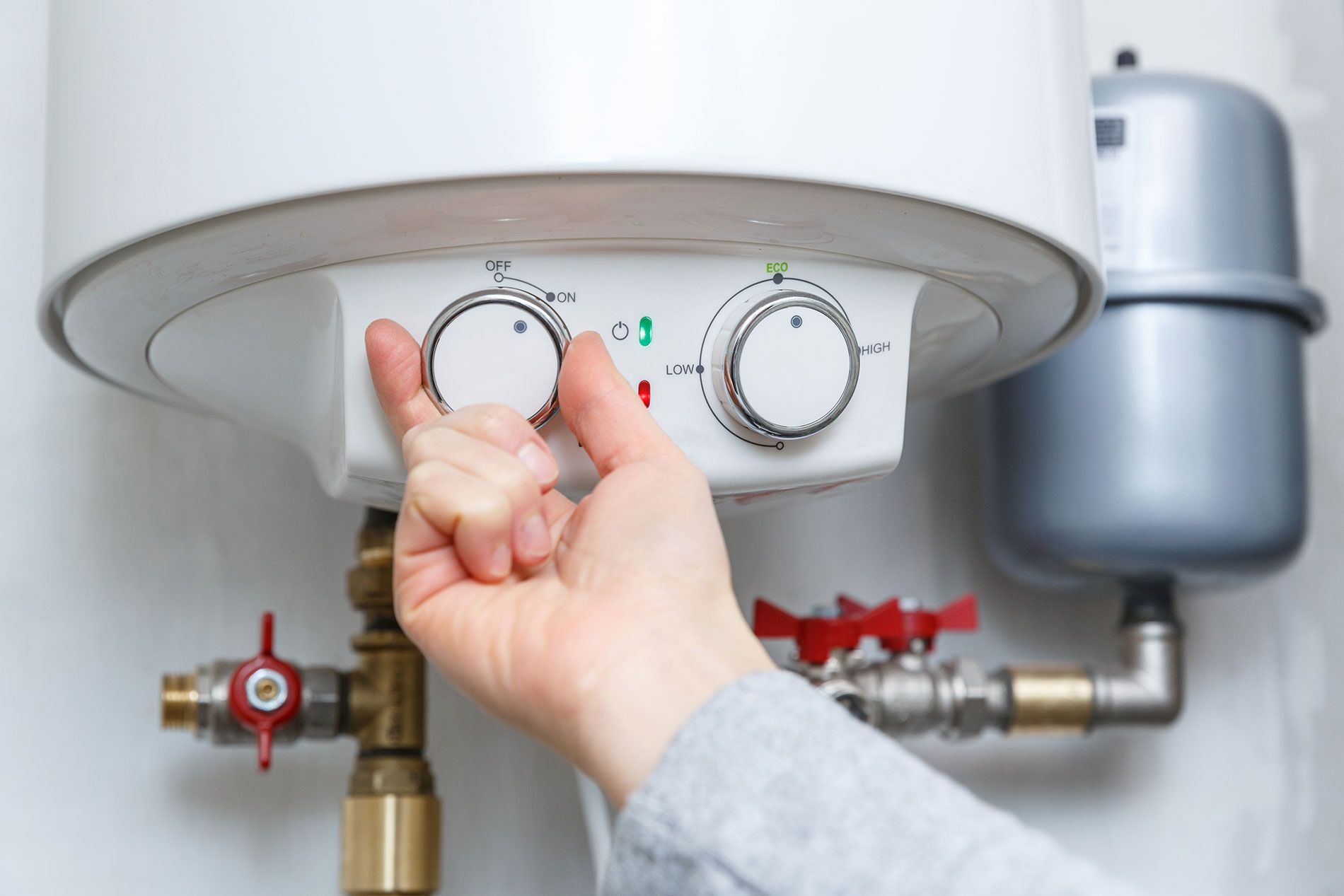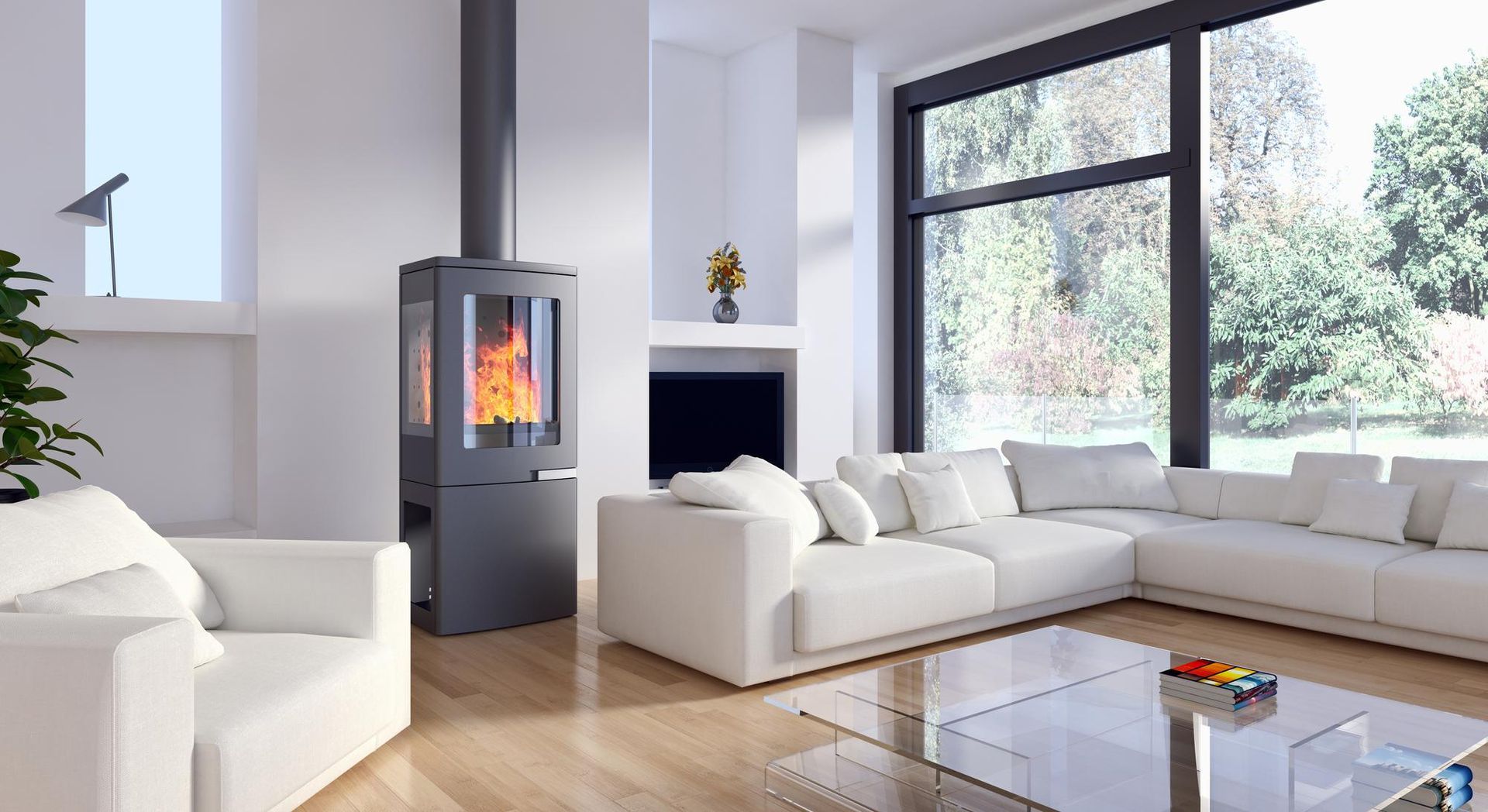Heat Pump Installation: Your Winter Warmer Home Solution
Dec 13, 2023
As winter's chill creeps in, the quest for a cozy, warm home becomes a top priority. One solution that's gaining popularity is heat pump installation. This innovative technology isn't just a trend; it's a game-changer for your home's comfort and energy efficiency during the cold months. Heat pumps have become a go-to for homeowners looking to upgrade their heating systems. So, let's dive into why installing a heat pump this winter could be the best decision for your home.
Understanding Heat Pumps
What exactly is a heat pump, and how does it keep your home toasty in winter? A heat pump is a device that moves heat from one place to another. It works like a refrigerator, but in reverse. Instead of removing heat from inside and releasing it outside, it takes heat from the outside air or ground and moves it indoors.
There are different types of heat pumps, such as air-source and ground-source. Air-source heat pumps are popular and ideal for moderate climates. They extract heat from the air, even when it's cold outside. Ground-source heat pumps, also known as geothermal heat pumps, draw heat from the ground and are more efficient, but they require a bigger initial investment.
The beauty of a heat pump is its ability to provide efficient heating in winter. They use less energy than traditional heating systems, making them an eco-friendly choice for your home.
Benefits of Heat Pump Installation in Winter
Installing a heat pump in winter comes with several benefits. Firstly, heat pumps are incredibly energy-efficient. They use less electricity compared to conventional heating systems, which means lower energy bills for you. This efficiency doesn't just save you money; it also reduces your carbon footprint, making heat pumps an environmentally responsible choice.
Another advantage is the consistent and even heating that heat pumps provide. Unlike traditional heating systems that can cause hot and cold spots in your home, heat pumps maintain a steady temperature, enhancing your comfort during winter.
Preparation for Heat Pump Installation
Preparing for the installation of a heat pump is a crucial step in ensuring a smooth transition to this efficient heating system. It involves a series of considerations and actions that pave the way for a successful installation.
The first step in preparation is assessing your home's compatibility with a heat pump system. This assessment includes evaluating your current heating system, the insulation quality of your home, and the overall layout and size of the space. Good insulation is key as it ensures the heat pump operates efficiently, maintaining warmth without excessive energy expenditure.
Choosing the right type of heat pump is the next important decision. With options ranging from air-source to ground-source heat pumps, each has its unique requirements and benefits. An air-source heat pump, being the most common, is generally easier to install and works well in moderate climates. In contrast, a ground-source heat pump requires more extensive installation but offers greater efficiency. Your choice should be informed by your local climate, the size of your property, and your heating needs.
Finding a qualified installer is perhaps the most critical part of the preparation process. Heat pump installation is not a DIY project; it requires technical knowledge and expertise. Look for certified professionals who have experience with the type of heat pump you’ve chosen. You can search for local installers, check reviews, and ask for referrals from friends or family. Ensure that your chosen installer is licensed and insured, providing an extra layer of protection and peace of mind.
Once you have selected an installer, they will likely conduct a site visit. This visit allows the installer to understand the specifics of your home and plan the installation accordingly. They will check where the units will be placed, evaluate electrical connections, and discuss any modifications that might be needed.
In preparation for the installation day, clear the area around where the heat pump will be installed. Ensure easy access to these areas for the installation team. If you have pets or small children, consider how to keep them safe and out of the way during the installation process.
It's also a good time to address any questions or concerns you might have about the installation or operation of the heat pump. Your installer can provide valuable insights into the maintenance requirements, operational costs, and the expected impact on your energy bills.
By thoroughly preparing for the heat pump installation, you help ensure a smoother process and a more efficient and effective heating system for your home. This preparation not only facilitates the installation process but also sets the stage for optimal performance of your new heat pump, promising a warmer and more comfortable home during the winter season.
Installation Process
The journey to a warmer home during winter begins with the installation of your heat pump. This process, while technical, can be made smooth and hassle-free with the help of skilled professionals. Understanding the steps involved can give you a better idea of what to expect and how to prepare.
Firstly, your installer will conduct a detailed assessment of your home. This includes determining the optimal location for the heat pump units. Factors like the layout of your home, the direction of prevailing winds, and even landscaping can influence this decision. The goal is to find a spot where the outdoor unit can operate efficiently and with minimal noise disturbance.
Next comes the installation of the outdoor unit. This unit is responsible for extracting heat from the outside air or ground. The installer will ensure it's placed on a stable, level surface, typically on a concrete pad or sturdy brackets. It's crucial that this unit is installed correctly to ensure maximum efficiency and longevity of the system.
The indoor unit, which releases the warm air into your home, is then installed. Depending on the type of heat pump, this could be a wall-mounted unit, a floor console, or a ducted system. The installer will run refrigerant lines between the outdoor and indoor units, carefully sealing and insulating them to prevent energy loss.
One of the most critical steps is connecting the heat pump to your home's electrical system. This requires precision and expertise, as improper installation can lead to inefficiencies or even safety hazards. Your installer will also set up any necessary thermostats or control systems, allowing you to manage the temperature of your home easily.
Before concluding the installation, the system is thoroughly tested. This includes checking the refrigerant levels, ensuring all connections are secure, and verifying that the system operates as expected. The installer will also walk you through the basics of operating your new heat pump, covering essential aspects like adjusting temperatures, using the control system, and recognizing any signs that may indicate a need for maintenance.
Finally, the installation area is cleaned up, leaving your home just as it was, but now equipped with a state-of-the-art heating solution. With the heat pump installed, you're set to enjoy a warmer, more comfortable home throughout the winter months.
This comprehensive installation process, when done correctly, sets the stage for years of efficient and reliable heating. The expertise and attention to detail of your installer play a crucial role in ensuring that your heat pump operates at its best, providing you with warmth and comfort during the cold winter days.
Maintenance and Upkeep
After your heat pump installation, regular maintenance is essential for optimal performance. This includes cleaning filters and scheduling annual check-ups with a professional. Proper maintenance ensures your heat pump runs efficiently, especially during the demanding winter months.
If you encounter any issues, don't hesitate to contact your installer. Common problems can often be resolved quickly, keeping your home warm all winter long.
Cost Considerations
While the initial investment for heat pump installation can be higher than traditional heating systems, the long-term savings are significant. Heat pumps are more energy-efficient, leading to lower utility bills. Additionally, many governments offer rebates and incentives for installing energy-efficient systems, which can help offset the upfront cost.
When comparing costs, it's essential to consider both the short-term and long-term financial benefits. Over time, the savings on your energy bills can substantially outweigh the initial investment.
Real-Life Success Stories
Many homeowners have experienced the benefits of heat pump installation first-hand. For instance, John from Colorado noticed a significant decrease in his energy bills after switching to a heat pump. Sarah from Michigan enjoys consistent and comfortable heat throughout her home, even in the coldest months.
These stories highlight the practical and financial benefits of heat pumps, making them an increasingly popular choice for winter heating.
Conclusion
Heat pump installation is a smart solution for keeping your home warm and comfortable during winter. With their energy efficiency, environmental benefits, and cost savings, heat pumps are an excellent investment for any homeowner. If you're considering upgrading your heating system, a heat pump is definitely worth exploring.
For those in Michigan, a top-rated service provider for heat pump installation is All Brands Heating and Cooling. They have established a reputation for exceptional service and expertise in heat pump systems. Whether you are in Dowagiac, Kalamazoo, or Portage, their team is ready to assist you with your heating needs.
- In Dowagiac, MI, you can reach them at (269) 782-8900. They are known for their detailed approach and customer satisfaction in this area.
- If you're near Kalamazoo, MI, their local team can be contacted at (269) 251-8102. They offer tailored solutions for each home, ensuring optimal heating efficiency.
- For residents in Portage, MI, their dedicated team is available at (269) 343-8668, offering top-notch installation and maintenance services.
All Brands Heating and Cooling stands out for their commitment to quality and customer service, making them a reliable choice for your heat pump installation needs.
More Posts
© 2023 All Brands Heating And Cooling | Powered by Goodly


